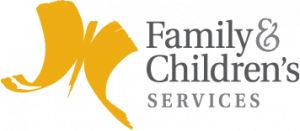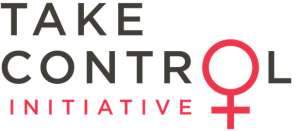Sexual Health Talks
Mental Health Association Oklahoma
› Tell us a little about your organization: what are your goals and missions?
Mission: Mental Health Association Oklahoma (the Association) is dedicated to promoting mental health, preventing mental disorders, and achieving victory over mental illness through advocacy, education, research, service, and housing.
Vision: Mental Health Association Oklahoma envisions a just, humane, and healthy society in which all people are accorded respect, dignity, and the opportunity to achieve their full potential, free from stigma and prejudice.
› What services do you provide?
Mental Health Association Oklahoma (the Association) has been advocating for Oklahomans impacted by mental illness and homelessness since 1955. We are dedicated to promoting mental health and the equity of access to mental health care through advocacy, education, research, service, and housing. The Association’s housing portfolio currently includes 1,440 units of affordable housing in Tulsa and 133 units in Oklahoma City. Our programs include housing, mental health education, support groups, pro bono counseling, mental health screening and referral, suicide prevention, peer-to-peer recovery services, employment placement and support, integrated mobile medical intervention, and criminal justice advocacy. Our housing program utilizes a Housing First model that provides immediate access to safe, decent, and affordable housing for individuals impacted by mental illness, homelessness, substance use, and justice involvement. While fragmented systems of care struggle to meet the complex needs of these individuals, our mission is designed to greatly reduce barriers to accessing affordable housing and mental health care in one collective effort. We believe our housing program and wrap-around services position us to begin meeting the mental health care needs of the most vulnerable members of our community.
› In what ways has your organization had to adjust its services or ways of functioning in response to the COVID-19 crisis?
At this time, Mental Health Association Oklahoma programs and services continue to operate under modifications as guided by Association protocols, Centers for Disease Control and Prevention, and the Tulsa Health Department. Denver House, our drop-in center, is closed to the public temporarily due to the difficulty of maintaining social distancing in that space, but those staff continue to provide outreach in coordination with our Homeless Street Outreach and Rapid Response Team. We continue to move people into our housing units, provide services to people in our housing sustainability programs, provide direct services at our 24-hour staffed apartment buildings, offer crisis support to program participants, provide meals and support to people experiencing homelessness, and provide food and necessities to program participants as necessary.
› What has been the most difficult part of the COVID-19 transition for your organization?
We are reinventing our business model on the fly. This is both difficult but also lends itself to innovative new ideas that will carry on in the future. For instance, we cannot offer in-person support groups right now so we’ve taken them virtual. We now offer all of our support groups via Zoom.
› What have you learned from this transition? Key take-aways as an organization?
We rise to any challenge together. Everyone involved with our organization, including funders, partners, staff and volunteers, have all stepped up in ways that make us grateful and proud to be a part of this effort to serve people who need our help now more than ever.
› Are there any changes that have been made as a response to COVID-19 within your organization that will continue to be implemented after COVID-19 regulations are lifted?
Although it will be easier to answer this question after this crisis is over, we anticipate many of the on-the-fly changes we have been forced to make will benefit our organization and those we serve long after the crisis has ended. For instance, embracing remote working and offering virtual support groups.
› How can the community support you?
This year, we’re asking people to be apart. Yes, that means social distancing, but we’re also asking people to be a part of our mission. We want you to be a part of suicide prevention, ending homelessness, promoting mental health and criminal justice reform. Here are some ways you can get involved from a distance.
MAKE A DONATION AT MHAOK.ORG: Your donation helps support our important programs and services that we continue to provide during the COVID-19 pandemic.
LISTEN TO THE MENTAL HEALTH DOWNLOAD: The Association podcast publishes a new podcast every day covering important topics related to mental health.
ENGAGE WITH US ON SOCIAL MEDIA: Engaging with the organization on social media.
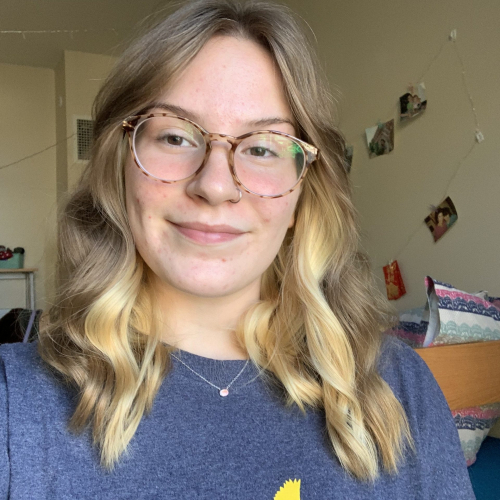
Sydney Panzica
My name is Sydney Panzica and I am a Peer Health Educator with the Take Control Initiative. I am passionate about helping people be informed and have access to all forms of inclusive health services. As a Peer Health Educator, I chose to reach out to Mental Health Association Oklahoma because having access to mental health resources is extremely important, especially during such a challenging and isolating time. I spoke with Matthew Gleason to learn more about the services being offered and how they have been affected by the current global health crisis.
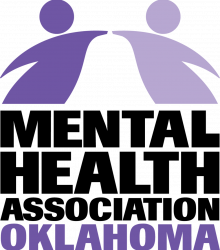
James Inc
› Mrs. Alisa what services do you provide?
- J.A.M.E.S. Inc Parent Academy is a three year program designed to provide an encouraging, comfortable, supportive environment where our target population (expecting and parenting teens and adolescents up to age 24) can enjoy themselves while learning immediately useful skills and building stronger and higher personal, family, and educational aspirations.
- The Summer Parent Academy (SPA) a 16 day enrichment program under the parent academy umbrella takes place in June of each year. The program components include: leadership development seminars, personal development workshops, creative expression activities, communication seminars, photography seminars, technology seminars, recreation opportunities, and weekly field learning experiences. This year all classes will still be taking place, just virtually.
- The Young Parent Advisory Board is designed to carry the Parent Academy learning experience to the next level and provides opportunities for real-world translation of skills and uses of learning. All members have graduated from the program and now dedicate themselves to advocate for the other parents.
- Adolescent Virtual Book Club (ABC) is a virtual reading group designed to give expecting and/or parenting adolescents an opportunity to read and discuss books based on topics supporting the goals of the parent academy. All discussions on the book are virtual. We have even had the awesome experience of bringing in a local author to dive deeper into their book for our Book Club Members.
- Educational Doula Program – Educational Doulas are mentors who provide education specific mentoring through a client members first year post secondary education opportunities.
- Case Management – assessment, treatment planning, linking, advocacy, referral, and monitoring.
› In what ways has your organization had to adjust its services or ways of functioning in response to the COVID-19 crisis?
We have had to quickly adjust to a total on-line format which we had not done in the past.
› What has been the most difficult part of the COVID-19 transition for your organization?
Not having daily face to face with our young parents and their families. If you have listened to our podcast there is a word repeated over and over: community. We are a close-knit organization that has seen our clients’ individual growth as well as their growth as a group supporting one anothers successes. Not being able to meet up, do our Lunch and Learns, or field trips has been a weird adjustment for our clients but as we say: “Take it one day at a time.”
› What have you learned from this transition? Key take-aways as an organization?
Interest and engagement has improved greatly using our new format (virtual and live videos). We have been lucky enough to have a weekly video chat meeting to check in on one another and it helps feel the void of no communication. It is important to us because it really drives the point that our clients are committed and willing to adjust and evolve with us.
› Are there any changes that have been made as a response to COVID-19 within your organization that will continue to be implemented after COVID-19 regulations are lifted?
We will definitely continue to provide professional content to our young people using technology so we can grow our network. Providing more classes virtually will help individuals all over Tulsa have access to the information we have to offer.
› How can the community support you?
Time, talent, and treasure. Like, share and follow our Facebook @JAMESincorporated and Instagram @james_inc_ All of our upcoming events will be posted there. Send us emails about interesting people with interesting skills who would be willing to share their stories, talents, skills, with our client members. If you know a young parent, have them reach out on our social media accounts or contact us at info@jamesinc.org with any questions at all. Visit our website jamesinc.org
Metriarch
› Tell us a little about your organization: what are your goals and missions? What is your role within the program?
“Metriarch” is a statewide data collaborative that centers the women’s health conversation around human dignity, inherent value and essential security for women and their families. Metriarch is incubated by the Take Control Initiative, a Tulsa-based nonprofit organization that sits at the intersection of education, public health and clinical services.
› What services do you provide?
The collaborative has formed working groups to create the following: a report on the status of women across the state, advocacy tools to support legislative outreach, and web tool of curated data that better define and visualize the status of women’s health and well-being.
› In what ways has your organization had to adjust its services or ways of functioning in response to the COVID-19 crisis?
Though our mission remains the same, COVID-19 changes things. “Data Stories” is a project that the Metriarch Collaborative originally slated to launch in the fall of 2020, but recent events have blue-streaked that timeline. The goal remains the same: to highlight the work of Metriarch partners and build context around the unique sociology of public health concerns most relevant to women. Data Stories combine quantitative insights with compelling narrative to paint a clearer picture of the status of women’s health and well-being in the state of Oklahoma. Provided the unprecedented public health emergency brought forward by COVID-19, Metriarch has begun sharing information related to the Pandemic in this Data Stories format. The story below builds context around the data that we know, shines light on the data that we need, and contemplates the many questions of a world still grappling with an emerging new reality.
› What has been the most difficult part of the COVID-19 transition for your organization?
Making sense of what the COVID-19 data actually is actually telling us based off of statistical and epidemiological methods.
› What have you learned from this transition? Key take-aways as an organization?
We are an adaptive and good spirited bunch.
› Are there any changes that have been made as a response to COVID-19 within your organization that will continue to be implemented after COVID-19 regulations are lifted?
We will continue to provide more online resources.
› How can the community support you?
By letting us know what they would like for us to report on related to women’s health, or other resources that they might need.
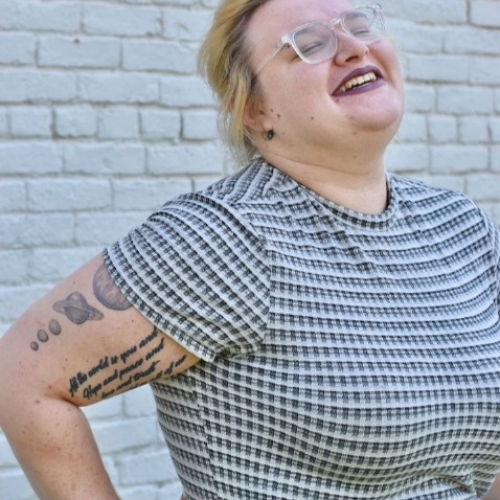
Leah Belvins
My name is Leah Blevins and I am a Peer Health Educator at Take Control Initiative. I have found that my passion lies within inclusive and safe environments. I want to be able to provide every individual I encounter with an understanding and accepting conversation. Being a Peer Health Educator during the COVID-19 Pandemic has been difficult because we lost the peer-to-peer part of our journey. The pandemic has had a big affect on many people and many organizations across the world. We have found a way to build a community atmosphere while following the CDC guidelines by interviewing a few awesome nonprofits. I knew I wanted to interview Alisa Bell, Founder and Executive Director of James Inc (Just About Mothers Excelling in School), because the work she does with adolescent mothers and fathers is a cause that is dear to my heart, as I was a teen parent. I also interviewed Emma Swepston from Metriarch.
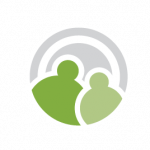
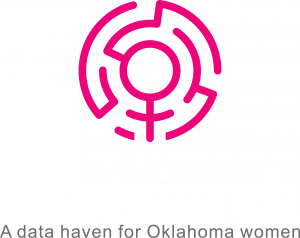
Amplify Youth Collectivec
› Tell us a little about your organization: what are your goals and missions?
Amplify is youth health collective in Tulsa, Oklahoma with a mission to promote healthy futures for youth through advocacy, collaboration, and education. Amplify addresses adolescent sexual health outcomes including unplanned teen pregnancy. Amplify leverages the strengths of young people, partner organizations, and trusted adults to provide and strengthen a network of educational, environmental, and social supports leading to positive adolescent sexual health outcomes.
› What services do you provide?
Amplify serves as the backbone organization for youth sexual health work in Tulsa. We utilize a collective impact model which provides support, expanded capacity, and structure to our partners in the community. Amplify is not a direct-service agency, instead we amplify the strengths and programs of partner organizations to expand their reach and capacity.
Key functions of the collaborative include training of classroom teachers and community-based sexuality educators; coordination and technical assistance support for community partners and schools implementing sexual health education; facilitating the Youth Leadership Council to ensure youth voice guides the collaborative work; outreach to parents and the general community about the importance of youth sexual health; advocacy to school administrators, policy makers, and the community for policies that promote healthy futures for youth; convening partners to achieve shared goals and avoid duplication of effort; and jump-starting new initiatives to address gaps in sexual health education programs.
› In what ways has your organization had to adjust its services or ways of functioning in response to the COVID-19 crisis?
Amplify is very fortunate to have the sustainability to continue functioning at full capacity during the COVID-19 pandemic. At the onset of social distancing recommendations, Amplify made the decision to adjust to a remote team as opposed to utilizing our office space. Our organization felt it critical to prioritize the health and safety of our team during the COVID-19 pandemic. We started relying on regular virtual meetings using Zoom and began utilizing project management tools like Trello.
A key way Amplify supports our partners is through the training of classroom teachers and community-based sexuality educators. Summer months are the most training intensive months for our training schedule. In order to comply with social distancing recommendations we have needed to cancel several trainings and adjust some to a virtual format if applicable.
Amplify coordinates and supports the implementation of sexual health education in Tulsa Public Schools, and this key program was greatly affected by COVID-19 as schools were adjusting their own policies. This led to students who had not already received their scheduled implementation to not receive this education this year. We partnered with our curriculum developer to offer their evidence-based sexual health education on a virtual platform to the community, and we are working with our partners to develop a plan moving forward for the school sites didn’t receive implementation.
Our Youth Leadership Council continued their programming, but adjusted to a virtual format as well. Our team is inspired by these young people and their commitment to our mission, and we prioritized providing resources and support for YLC members during the COVID-19 pandemic. These supports included flexible meeting times, adjusted group goals, and care packages containing food, health items, and meeting supplies.
Amplify also adjusted its communication strategy to promote resources and information which recognized the difficult and unique challenges facing young people during the COVID-19 pandemic. Amplify sought to connect young people with the resources and information needed to support them during the pandemic.
› What has been the most difficult part of the COVID-19 transition for your organization?
The COVID-19 pandemic has impacted every part of our society. While our organization was able to make timely accommodations as needed, we recognize the most difficult part during the pandemic is learning how to best support our team and partners during this devastating time. With the far-reaching impact COVID-19 has made on our community and families, we understand supporting our team is more important than just promoting productivity. Amplify is fortunate to have a team with strong internal communication and shared values of mutual support.
› What have you learned from this transition? Key take-aways as an organization?
We realize how fortunate we are as an organization to have a team which is so invested in our work and supporting each other. Our team proved capable, flexible, and resilient when faced with the extraordinary challenges presented during the public health crisis.
While our organization had policies and structures in place to support our work during the COVID-19 pandemic, we recognize now more than ever how important it is to always be prepared in case of critical changes to our field and world. As we grow and adapt as an organization we will continue to prioritize the investments in our team and sustainability.
› Are there any changes that have been made as a response to COVID-19 within your organization that will continue to be implemented after COVID-19 regulations are lifted?
There are several changes which will continue after the COVID-19 pandemic. Amplify has invested in virtual program and training development which we are excited to continue offering and expanding on for greater accessibility to our partners and a broader network. Our team will continue to utilize online project management and collaboration tools like Trello and Zoom. We will also continue to work with curriculum developers to seek innovative ways to deliver evidence-based sexual health education outside of a traditional classroom environment.
› How can the community support you?
Amplify is strengthened by community support and engagement. We want the community to work with Amplify to champion our mission of promoting healthy futures for youth through advocacy, collaboration, and education. An easy way to support our work is to connect and engage with Amplify. We regularly update our social media and website, and share information about how to get involved in youth sexual health programming. Amplify is always looking to expand the positive impact of our work and partners. We hope the community will continue advocating for increased sexual health awareness and education; having critical conversations about love, sex, and relationships within their own networks and family; and joining Amplify as we highlight the power and capabilities of young people who have access to factual information and resources to make sexual health decisions and planning their future.
Our website, www.amplifytulsa.org is a great resource to learn more about our organization and stay connected with us.
Family & Children’s Services
› Tell us a little about your organization: what are your goals and missions? What are your goals and missions?
Family & Children’s Services restores children’s well-being, heals victims of abuse and neglect, strengthens individuals and families and provide hope and recovery for adults suffering from mental illness and addictions. Since 1921, we have led the way as the major safety net provider in Tulsa, ensuring services for low income, at-risk children, families and individuals with a variety of emotional, behavioral and family problems.
› What services do you provide?
Our professional staff provide individually tailored, evidence-based treatment services across the entire mental health continuum for children and adults. Services include: adult and family counseling, outpatient mental health treatment, children’s counseling and mental health treatment, crisis services, pharmacy, substance abuse and addiction treatment and jail diversion programs. Tulsans receive help through a network of 9 office locations and in more than 50 schools and community partner locations throughout the greater Tulsa metropolitan area. F&CS helps 1 in 6 Tulsans each year through over 60 programs.
› In what ways has your organization had to adjust its services or ways of functioning in response to the COVID-19 crisis?
On March 11, the walls of the Family & Children’s Services (F&CS) conference room were lined with sheets of sticky paper filled with plans of action. The F&CS Pandemic Emergency Management Team quickly recognized that traditional face-to-face care would be risky for staff and clients during the COVID-19 pandemic. Teleservices isn’t new for F&CS. For the last four years, F&CS Psychiatry has been using tele-psych with much success. Through a similar structure, F&CS quickly implemented privacy-compliant, virtual therapy for 60 programs over the course of a few days. Crisis calls are continuing to be answered by the Community Outreach Psychiatric Services (COPES) Crisis Hotline.
In-person psychiatric care is still available through the CrisisCare Center’s 16-bed, stabilization unit and crisis recovery center. The F&CS in-house pharmacy continues to provide medications and injectables for clients.
As the largest outpatient behavioral health provider in Oklahoma, the agency needed to rapidly shift to a virtual environment for 508 employees including therapists, physicians and case managers to ensure continuity of services for over 1200 vulnerable and mentally ill clients F&CS cares for each day.
Driven by a determined leadership group, a flexible workforce, adequate technology equipment, telehealth software and a talented technology team, F&CS transformed their entire service delivery system in a just couple of days. F&CS employees quickly adjusted to remote meetings, collaborations and conversations using Microsoft Teams, Zoom, FaceTime, Google Voice and ClockTree.
Therapy appointments are being scheduled using Microsoft Teams and Doxy.me, both secure telemedicine solutions compliant with federal patient privacy laws. The sessions are not recorded, and no outside party can join. The therapist emails an invitation to their client who downloads the Microsoft Teams app on their phone or computer. The therapist initiates the call.
› What has been the most difficult part of the COVID-19 transition for your organization?
F&CS was able to quickly and easily transition to a remote work model for internal and external operations. While we miss in-person collaboration, our services have not suffered. In fact, we are helping approximately 7,000 individuals a week through our services. This is on par and with how many we served pre-COVID. One thing that is difficult is that we have had to cancel one of our major fundraising events and are concerned about events in the fall.
› What have you learned from this transition? Key take-aways as an organization?
In a short few months, the COVID-19 pandemic disrupted our world in unprecedented ways. It forced us to live and work differently, exacerbated stress and also it also provided a few good life lessons. We have learned that we are adaptable and resilient. Our work communities do not need to share facility locations to be strong. We have leaned on our values and culture to support each one another. Despite social isolation, remote work and our own personal challenges, we have come together.
› Are there any changes that have been made as a response to COVID-19 within your organization that will continue to be implemented after COVID-19 regulations are lifted?
Our strategic vision has always included innovation to stay at the forefront of the behavioral healthcare industry. We prioritize being an early adopter of changes emerging in clinical practice and service delivery COVID accelerated these plans with telephonic and telehealth implementation. We will continue this practice after regulations are lifted and will include with in-person care.
› How can the community support you?
We expect mental health needs to grow as people deal with anxiety, loss, trauma and grief. We expect there to be higher rates of suicide, addiction and trauma. Funding is critical. Education is critical.
Moira McDowell
My name is Moira McDowell and I was a Peer Health Educator at Take Control Initiative. I interviewed Amplify’s Youth Health Collective coordinator Arlowe Clementine and Dee Harris from Family & Children’s Service.

